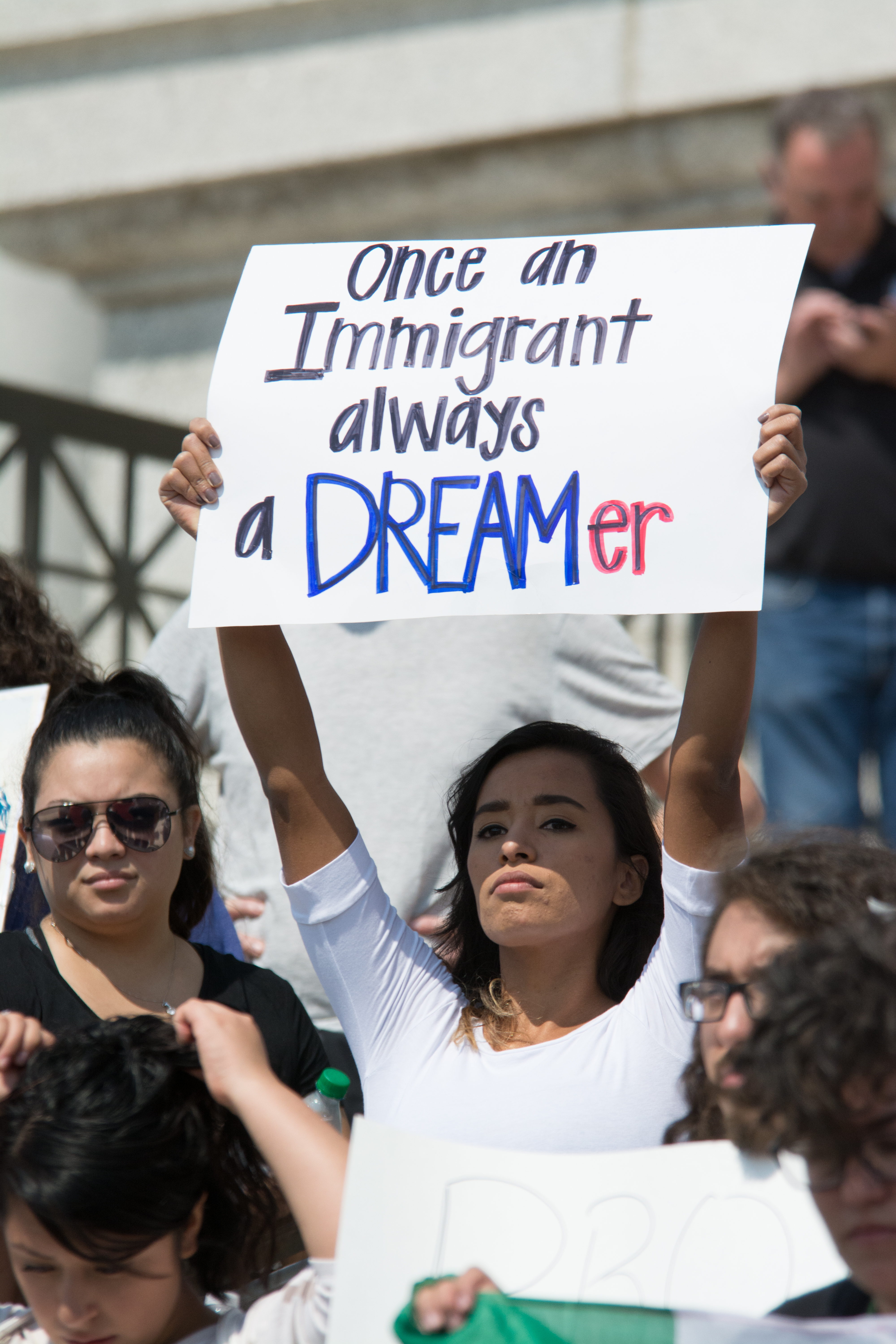
The streets of downtown Salt Lake City buzzed with energy on Sept. 16 as people came from all across the state to protest the termination of the Deferred Action for Childhood Arrivals, or DACA, program.
People from all walks of life — teachers, students and non-profit organizers — came out to show their support for the DACA program and its recipients.
BYU Education Professor Roni Jo Draper said she connects rallies and marches like these to tribal dances from the Yurok tradition, the Native American tradition she grew up with. Draper said she believes rallies and marches are an essential part of what it means to be American.
“There are plenty of ways to make change and to impact change and to be a person who is trying to do something to make the community better,” Draper said. “A rally is one way.”
The rally showcased countless Utah residents gathering in an effort to make the world right in their own way.
Utah elementary school teacher Ryan Pleune came to the march equipped with a decorative, cactus-shaped sign. The sign was painted with the faces of DACA recipients and featured the words, “We build. We resist. We rise.”
When asked why he came to the march, he spoke of his students and the difficulty they now face as a result of the end of DACA.
“I’m an elementary school teacher and I have a lot of mixed status families. For over a decade they’ve been getting torn apart,” Pleune said. “It’s what they call a ‘flower-petal policy.’ Sometimes they’re welcome, sometimes they’re deported.”
Pleune said he hopes the march will remind American citizens what is really at the heart of the DACA issue and at the heart of the nation.
“This isn’t an immigrant issue,” Pleune said. “This is an issue around democracy, an issue around maintaining the fabric of our unique country.”
University of Utah professor Joan Gregory identified love as the motivating factor for her attendance at the march.
“We need to put love back into the picture and stand on the side of love for our immigrants, for DACA youth, for people of color, for indigenous people,” Gregory said. “That’s what America is supposed to be for. We have lost our way.”
Many DACA recipients and Utah residents joined Gregory and Pleuene at the march. One DACA recipient was Jose Rodriguez.
Rodriguez said he believes DACA is a program worth defending.
“DACA is not a big political thing,” Rodriguez said. “It shouldn’t be about ‘left’ or ‘right.’ It should be about kids’ hopes, kids’ lives. It’s about young people.”
Demonstrators carried signs, flags and banners as they marched from the Wallace Bennett Federal building to the Utah State Capitol Building, where several speakers encouraged continued involvement to the crowd.
Ciriac Alvarez Valle — an organizer of the march, University of Utah graduate and DACA recipient — spoke about her deep ties to the DACA program and why she is fighting for immigration reform: not only for herself, but also “for the 11 million undocumented students living in the United States.”
“Today I fight for my family members, my friends and my coworkers who have made mistakes, who do have criminal backgrounds, because they deserve dignity and respect too,” Alvarez said to the crowd gathered in front of the Capitol building. “Today I also ask you to continue fighting for immigration reform, to push for the DREAM act, because while the DACA program may have ended, our dreams our hopes and our belief that we are here, and here to stay, continues.”
DACA recipient and University of Utah alumnus Francsico Juarez urged the demonstrators to remember the real goal of DACA activism and the protest.
“It is important to remember that the end goal is comprehensive immigration reform. By no means was (DACA) a permanent solution; it was merely a Band-Aid, but it did provide some hope,” Juarez said. “Now it is important to work as a unit to pressure Congress to pass legislation like the DREAM Act or the American Hope Act to lay the foundation of comprehensive immigration reform.”
The march was not the only recent show of activism surrounding the DACA announcement. The University of Utah hosted a rally on Sept. 15 and Utah Valley University also hosted a rally on Sept 8.
BYU history professor Ignacio Garcia said rallies such as these are one way people can be a part of the collective voice.
“All the great movements, all the great changes in American society … are based on people raising a collective voice,” Garcia said. “They can get out of hand, they can be terrible or they can be good, but they are all an effort to create a collective voice on a particular issue.”




